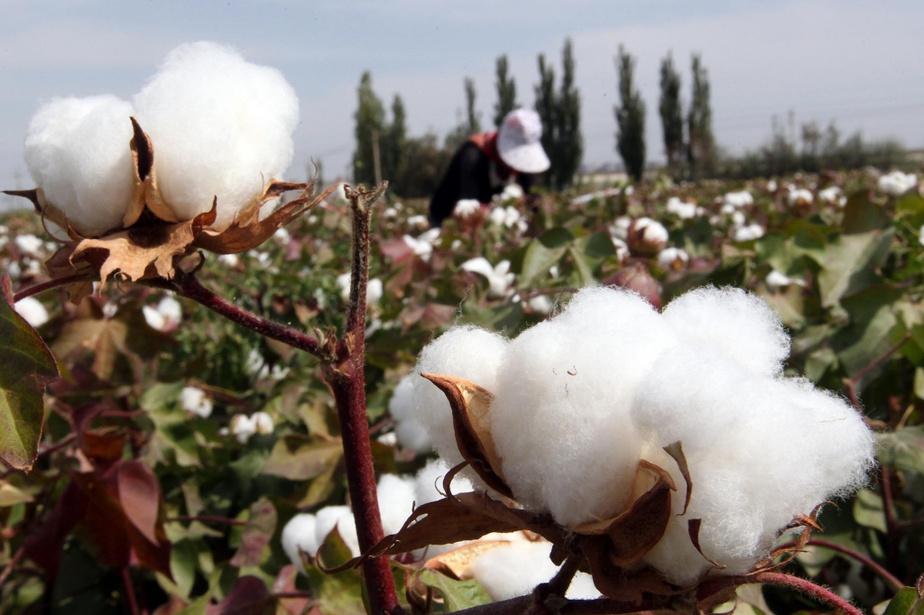
Clothes from China produced with forced labor?
Foreign firms that bring cotton garments to China for export run the risk of becoming embroiled in the ongoing crackdown in Xinjiang.
Published on Nov 15, 2019 Marc Thibodeau La PresseSeveral human rights organizations warn that it is difficult to guarantee that these orders will not be produced under duress by Uighurs detained or forcibly recruited in the region, which supplies 80% of Chinese cotton.
The risk of indirectly contributing to the situation is so high that the Uyghur Human Rights Project recommends that Western companies suspend all supplies of cotton, textiles or clothing from firms based in Xinjiang.
The warning is not superfluous since several well-known companies have had to answer questions on this subject in recent months.
Retailer Costco was notably arrested in October after US border services intercepted an order for children's pajamas from China.
US authorities intervened because the Chinese exporting firm, Hetian Taidai Apparel, had already been identified as one of those profiting from forced labor in Xinjiang.
Costo Wholesale assured in a press release that its Chinese supplier had not used factories in Xinjiang using forced labor.
The company added that it “has no reason to believe” that the products ordered could have been produced under objectionable circumstances.

The Canadian branch of Costco told La Presse that the pajamas in question had not been sold in its stores and that it had no connection with the Chinese supplier.
A Japanese company, Muji, has been criticized recently for claiming in its advertisements that the cotton shirts it sells contain cotton from Xinjiang.
Muji, which did not respond to interview requests from La Presse, continues to use the reference to this region on its website to market shirts, particularly in the version of its Canadian branch.
Scott Nova, director of the Workers Rights Consortium, an organization that investigates working conditions in factories in many countries, said Muji showed a serious lack of ethical and political sensitivity by evoking Xinjiang for marketing purposes.
ฉันชอบวิดีโอ @YouTube จาก @observergroup https://t.co/PwW776ZgHK How to make a Pallet bed frame
— Jaomommam Sun Feb 28 07:46:52 +0000 2016
The Japanese brand says it is investigating to ensure it does not benefit from forced labor in the region, but this promise rings hollow insofar as it is practically impossible, notes Mr. Nova, to carry out verifications worthy of this. name.
regime of terror
The Chinese authorities, which subsidize cotton production in Xinjiang, block access to production units and seek to cover their tracks by using administrative shells. They also impose on the Uighurs a regime of terror which means that ex-detainees cannot speak openly, even when they manage to go abroad, for fear of reprisals against their families.
According to Nova, many companies with ties to Xinjiang "are keeping a low profile right now in the hope that the media and the public will lose interest in the situation."
Their leaders, he says, know it will be “expensive and complicated” to disengage completely from the region and are reluctant to review their practices even if they should.
In a recent report, the Center for Strategic and International Studies (CSIS), based in Washington, says it has found about 30 factories and industrial parks in Xinjiang likely to use forced labor.
The workforce, it is said, can come from “re-education centers” akin to prisons, in which the Chinese authorities detain hundreds of thousands of Uighurs. The prison population in official prisons, which is very high in the region, is also put to good use.
Amy Lehr, co-author of the report, notes that China is also forcing large numbers of rural Uighurs to work in factories as part of an official "poverty alleviation" campaign that also aims to hasten the dissolution of the Muslim community.
“Foreign companies should consider whether they can ethically use suppliers from Xinjiang in such a context,” Ms. Lehr said.
The expert believes that companies wishing to promote the eradication of forced labor should boycott all cotton products from the region, so as to put pressure on China.
Hundreds of companies had agreed to such a strategy for Uzbek cotton, promoting a gradual change in working conditions in the country.
Chinese cotton represents a "much more substantial" share of the international market, which may complicate matters, she warns.







